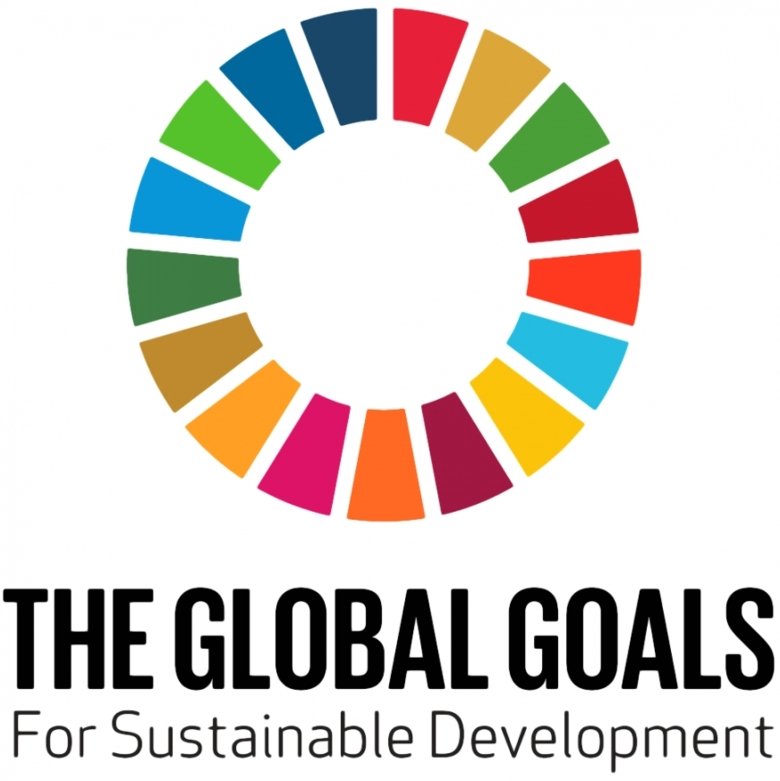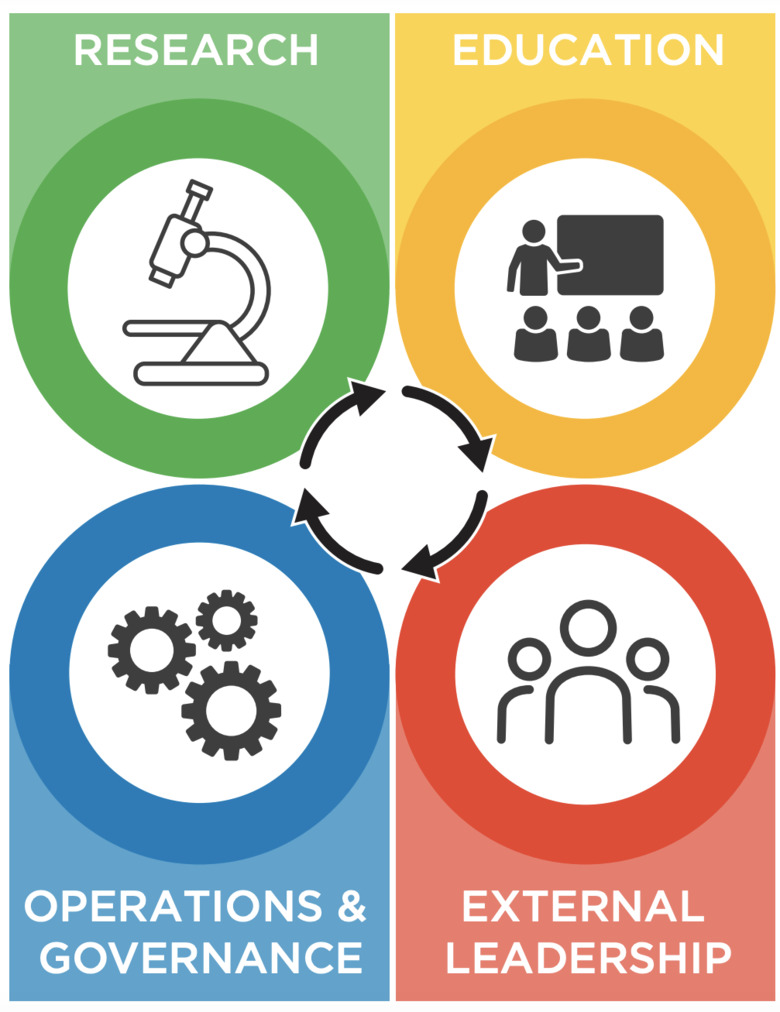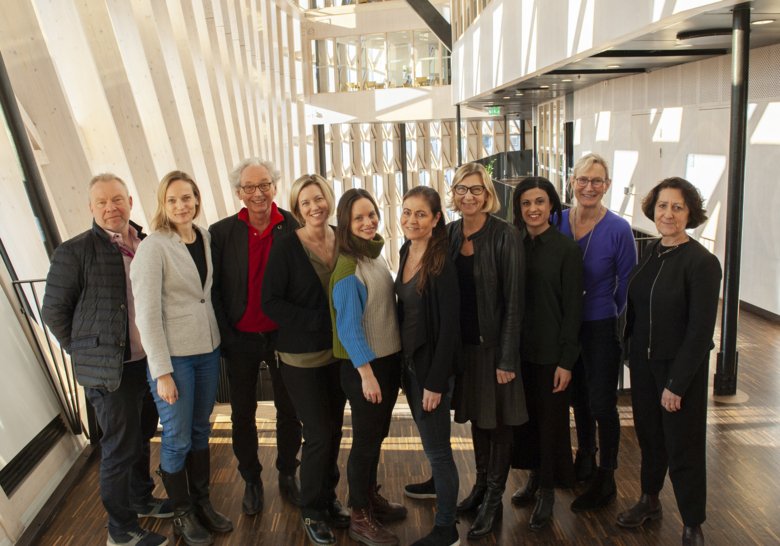Project "One KI for Sustainable Development"
The project was established by KI University Management at the end of 2019 to ensure that initiatives and activities for sustainable development and Agenda 2030 are strengthened through a structured and cohesive approach. The project was completed according to plan in the spring of 2022.
Background

According to Strategy 2030, KI's activities will be inspired by and contribute to the UN's Global Goals for Sustainable Development, Agenda 2030. This is in accordance with KI's vision: we are advancing knowledge about life and strive towards better health for all.
Expectations from KI University Management at the start of the project were to, both internally and externally, improve and make visible the activities that are linked to sustainable development and health, and affect our society and planet. An important component of KI's environmental and sustainability work is to strengthen KI's research and education, which contributes with knowledge about how societal development affects human health, now and in the future, locally and globally. The desired situation is that KI employees and students have a commitment to the SDGs, that identified internal challenges are addressed continuously and that KI's work, internally and externally, is considered value-creating and is synchronised.
Purpose and overall objectives
The project aimed to create cohesion that leads to the entire KI being involved in the work to strive towards sustainable development and Agenda 2030. What is already being done should be taken advantage of, as well as the commitment that exists among many employees and students. The main goal was for KI to have a clear profile for sustainable development and the SDGs. This includes the contribution of education and research for sustainable development.
Implementation
The Sustainable Development Solutions Network's (SDSN's) concept was a guide for the project. In many ways the realisation of the importance of cooperation at several levels and across borders is highlighted and emphasised – between departments, between research and education, core activities and operational support, with external partners, society and other universities.

♦ Research
Almost all research at KI aims to improve the health and well-being of people, and is thus crucial for sustainable development. Some research areas are clearly linked to several of the Global Goals and for the benefit of future generations and the world's most vulnerable.
♦ Education
All students graduating from KI should during their education been engaged with issues related to sustainable development and the UN's Global Goals. Teachers teach about the goals and the underlying challenges. Students are challenged to develop an ability to create visions, reflect on their own role in the development of society and be prepared to act.
♦ External leadership
KI should be an active partner when it comes to health and sustainable development and pursue issues of health in society – nationally and internationally.
♦ Internal operations
KI's internal operations are managed in a sustainable way. This includes, for example, work to reduce the climate impact from business travel, set environmental and ethical requirements in procurements and purchases, minimise health and environmental risks in the laboratory activities and to sort and reduce waste. Other examples are work for equal opportunities and for good health and well-being of employees and students.
Project outcomes
- Short introductory film "One KI for Sustainable Development" about KI's expectations and how KI's employees in different ways contribute to Agenda 2030.
- KI's introductory course "Getting started with the SDGs" on Agenda 2030 and the global goals was launched in the spring of 2021. Available to all employees.
- Informative and cohesive web page that is updated regularly to be up to date. Here you will find news, internal results and activities, as well as links to external material.
- Conducted two research conferences. KI's first conference on sustainable development with the theme "Climate Change - the Health Effects and How to Prevent Them" was held in November 2020. KI's second conference with the theme "From basic science to better health for all - making innovations reach the ones in need" was held in 2021.
- Calls for research funding for research related to SDGs were made in connection with the research conferences. In 2020 Five KI researchers were awarded funding for work with sustainable development, a total of SEK 1 million. The 2021 call, was modified based on first year experiences and aimed at younger researchers. Six KI researchers were awarded funding for SDG-related research.
- Analysis and report with proposals from the conference "Rethinking higher education; Inspired by the sustainable development goals" has been handed over to recipients. Also developed as a publication for submission to a scientific journal.
- Questions about sustainable development in education are included in the feedback from the departments, in exam questionnaires (education at undergraduate and advanced level), exit poll (doctoral students) and Alumni survey. Evaluation and results are expected at the end of the year.
- Guidelines and advice to education managers and teachers on how sustainable development can be integrated into education at KI have been updated and made available.
- Initiated collaboration with UoL resulted in an assignment from the Committee for Higher Education (KU) and the Committee for Doctoral Education (KFU), "Integrating Agenda 2030 into Education at KI" which involves the development of tools, continued support and knowledge enhancement for implementation within KI's programs and courses.
- KI's Climate Strategy 2030 has been developed. It clarifies KI's ambition in the climate area. It was approved by the President in February 2021. Since then, an action plan has been developed which defines activities and responsibilities. The action plan is a part of KI's environmental management system. The strategy is based on the Climate Framework, which KI has signed together with 37 other higher education institutions in Sweden.
- Active participation in external networks has contributed to knowledge development and that synergies are exploited. External networks include SDSN nordic, IAU SDG3 Cluster, National Coordination, Planetary Health, Stockholm Trio and University of Tokyo.
- Methodology and structure for external review and monitoring of sustainable development developed news and activities, resulting in monthly external reports.
- Basis for organisational changes with the aim of maintaining structure and cohesion created by the project team; New unit "The Office for Sustainable Development and Equal Opportunities" and updated assignment for the Council for Environment and Sustainable Development.
- Networks and contact areas have been created and developed internally - both in core activities and in support activities
Project organisation
When building the project team, emphasis was given on skills and experience according to what the project's activities would be expected to require. In addition, broad representation was taken into account from many departments and the University Management. The project leader and project members have contributed to the project work while holding regular positions and combining project assignments with other tasks.
The steering group consisted of representatives from committees, departments, university administration and student organisation. Added during the project period (not pictured) were: Stina Jaensson, Viivi Vellamo Sairanen and Elizabeth Stenwall.

